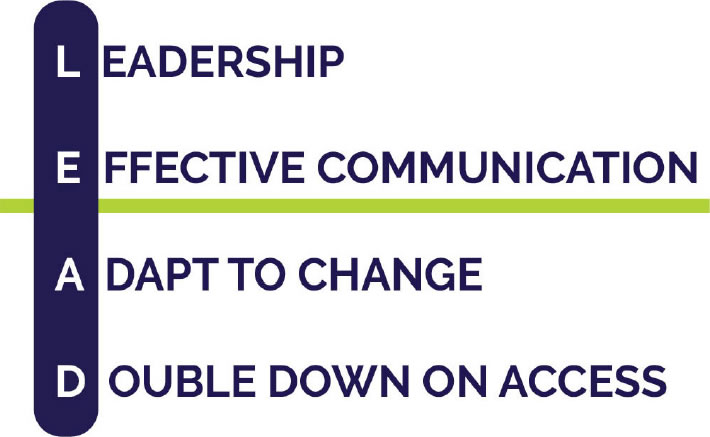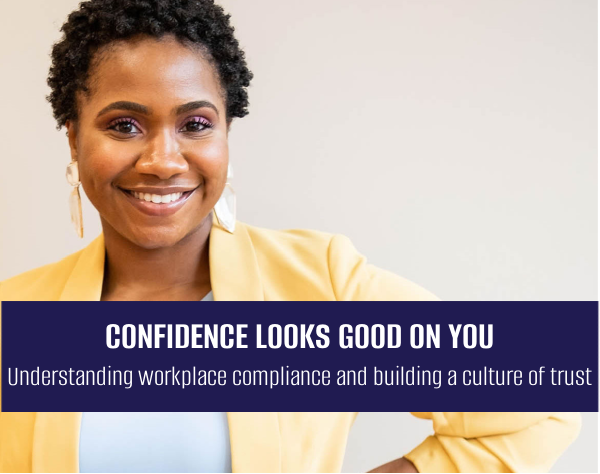One out of 5 US adults experiences mental illness in a given year. So, it’s no surprise then that one-third to one-half of workers will experience stress, anxiety, and depression during their working lives. People who have mental and emotional challenges often want to be at work, but unfortunately, they struggle when they’re there. In addition, they rarely ask for help.
Can you blame them? Mental health topics have been stigmatized for a long time, and only recently the pandemic brought them out in the open.
Mental health is a complex issue, but it’s an opportunity for you as a leader to reset your culture for the better. It is possible to achieve higher productivity, cultivate optimism, and maintain good relationships with your team even during crisis.
All it takes is a willingness to sharpen your communications skills.
Which is why the second pillar in our four-part LEAD series focuses on effective communication.

Through our work with dozens of non-profits and small businesses, we’ve landed on a framework to turn even the most difficult conversations into opportunities.
But to have that kind of confidence in your communication skills and emotional intelligence, you must first:
1) Develop self-awareness
2) Get used to difficult conversations (opportunities)
3) Listen
4) Be a Trusted Source
Let’s tackle those points individually:
1. DEVELOP SELF-AWARENESS
We covered this topic extensively in our first post “Four Pillars to Supporting Mental-Emotional Health in The Workplace–PART One”, and you can read it here.
2. GET USED TO DIFFICULT CONVERSATIONS
In the context of improving mental health conditions for your team, this means introducing a supportive environment as early in the relationship as possible.
Start the conversation before it becomes a crisis.
In our training “Building a Culture of Trust and Feedback” we call this having the “Trust Talk”.
The Trust Talk is an important step towards building a culture of respect which is essential for addressing mental health and well-being.
Whether this is a new or an existing relationship, here is how to have the Trust Talk:
- Ask for permission to share some insights
- Tell your teammate that your relationship matters to you and that you will protect it by always offering honest feedback.
- Ask if they are okay with this, then say “Will you do the same for me?”
Once the trust channel of communication is open, it will be much easier for you to offer specific support when it comes to mental and emotional heal
3. LISTEN
The workplacementalhealth.org has these excellent tips on developing your listening skills:
- Be available to employees through these challenging times.
- Give feedback, encourage employees to share questions, concerns and to seek information on key issues. This might include online and digital options, Q&A during online meetings, 1:1 virtual meeting, and other modes of communication.
- Ask for their opinion: If questions and issues come up that all employees should know about,create an online space for frequently asked questions (FAQs) and related information. Create safe spaces for discussions with supervisors and peers and ask employees how they would like those spaces to be structured. Then do what they’ve asked for.
4. BE A TRUSTED SOURCE
(workplacementalhealth.org)
Although you don’t have all the answers on the pandemic, you should acknowledge the uncertainty while gathering and sharing reliable updated information from trusted sources. Make this information easily accessible online and remind employees where they can find it and when it is updated. Being transparent and communicating timely updates builds trust with the workforce and shows the organization’s commitment to a culture of respect.
For more tips and insights on how to sharpen your communication skills and build a culture of respect in your organization, stay tuned for our training on “Building a Culture of Trust and Feedback”.
Join the community of intentional leaders here to be notified about our next free training.









